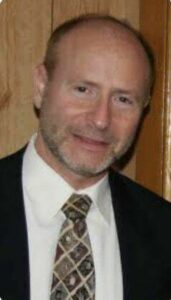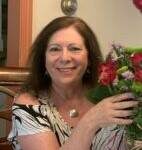
(Courtesy of Rabbi Jon Cutler)
Rabbi Jon Cutler
Parshat Teruman
This week’s Torah parshah, Terumah, tells about the building of the mishkan, the tabernacle in the wilderness. God instructs Moses to collect gifts from the Israelites to build a sanctuary — a place where God would dwell among the people. God says: “You shall accept gifts for me from every person whose heart so moves him.” And a few lines later, God explains: “Make for me a sanctuary and I will dwell among them.”
The Torah goes on to recount the overwhelming response of the Israelites who brought so many gifts, offerings and objects that the leaders had to tell the people to stop bringing them. The portion describes in great detail the construction of this portable sanctuary that would house the Ten Commandment tablets and a space to gather for worshipping God. The Israelites would carry this sanctuary along their journey to the Promised Land.
Rashbam, a commentator from the 11th century, explains the use of the word terumah, or gifts, means this is something each person must contribute from their own belongings. Even though each person is to contribute from their heart, God is very specific about the long list of gifts that are required: “These are the gifts that you shall accept. Gold, silver, copper, blue and purple and crimson yarns; fine linen, goat’s hair, tanned ram skins, dolphin skins and acacia wood … oil, spices and incense.
Now, the word that is translated as “dolphin” here is tachash. Rashi says the tachash is a sort of multicolored animal.
The commentators remind us that the gifts that the Israelites offer are from their belongings. They are told to hand it over to God. When the Israelites left Egypt, they carried with them odd and awkward items of no particular use or not quite gifts but were waiting for the chance to become sacred.
Therefore, within this week’s parsha are some timeless teachings.
We all have gifts. Some of us have talents of music or art or computer skills or are good with people. What is the one gift that any of us have yet offered? The one no one knows you carry. The one you may not even have thought of as a gift. The one that is still waiting. We need to ask ourselves: “When will I offer it?’ When will we use it to make the world holy?
Sometimes we can’t always identify our gifts. There is a member in my congregation who could have told you that her gifts included organizational skills. But what I have discovered is that she has a gift to give to others. Every week at lunchtime, she goes to a homeless shelter and feeds them. She didn’t see this as a gift.
And when we think of the gifts we bring, let’s not only think of skills — lawyers, teachers, nurses, accountants — but think in terms of deep listening, imagination and a passion for justice. We discover these gifts in one another. To find them, we need to spend time together. We need to encourage and support each other to bring forth our gifts. There is nothing that feels better than for someone to point out a gift you didn’t know you had.
Hence, the physical structure of the mishkan is not only for a place for God to dwell but a place for people to gather, to come together and to bring people inside so we can share our gifts with each other.
Rabbi Menacham Mendl of Kotz, the Kotzker Rebbe, asked, “Where does God dwell?” He replied, “Wherever people let God in.” This week’s Torah portion reminds us that God dwells among us when we all bring the best of our gifts to this place, our world. We are already in possession of untold gifts.
Rabbi Jon Cutler is co-president of the Board of Rabbis of Greater Philadelphia and rabbi of Beth Israel Congregation of Chester County. The Board of Rabbis is proud to provide diverse perspectives on Torah commentary for the Jewish Exponent. The opinions expressed in this column are the author’s own and do not necessarily reflect the view of the Board of Rabbis.





